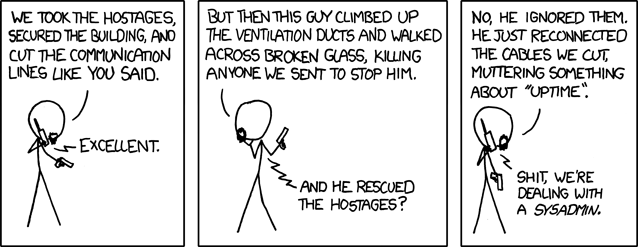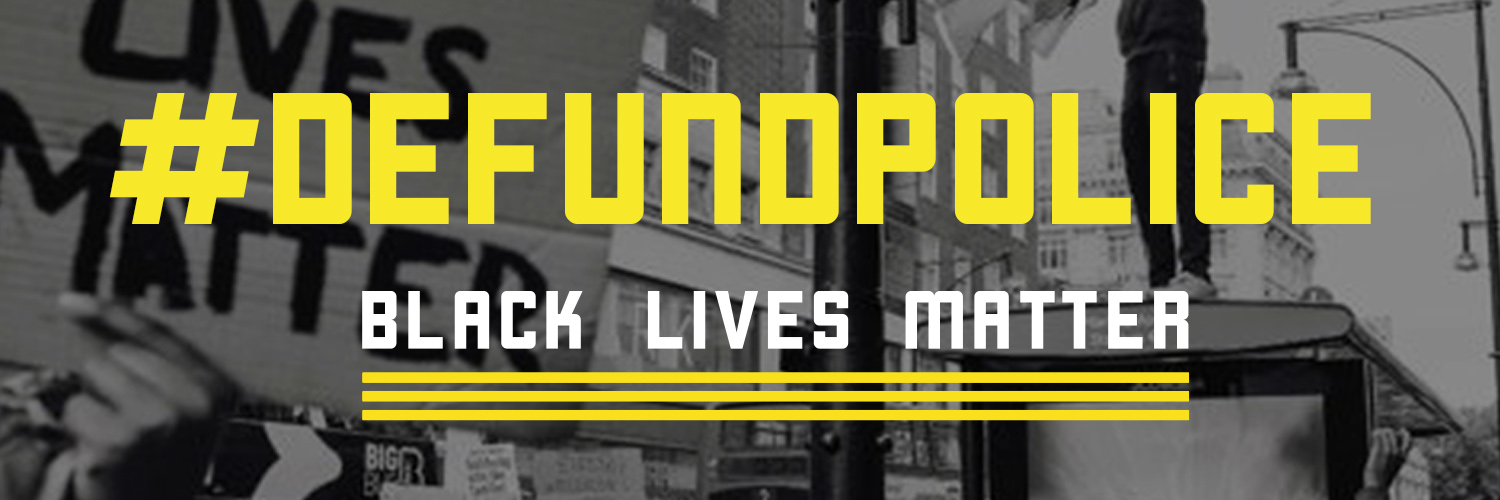Uptime
Every one of us has a data center to care for. Not everyone takes it as seriously as some do.

The mouseover text for this one reads
The weird sense of duty really good sysadmins have can border on the sociopathic, but it's nice to know that it stands between the forces of darkness and your cat blog's servers.
Point being, what's trivial to you or me is not so trivial to someone. And if that someone is a member of your household then you need to take it seriously, if for no other reason than shalom
Think about the things a data center does to create a fundamentally good environment for the computers it houses: climate control, power protection, redundancy, fire protection, physical security.
But Kahomono, I hear you saying, my house is not a data center! Oh no? Let's talk about a job I had a few years ago. OK, quite a few years. But still: we were opening a new data center for a major NYC bank. We had three computer rooms: the Mainframe room had 8 IBM 390s. The Time-Sharing room had 4 Honeywell DPS-8s. And the Mini room had about a dozen computers of various makes: Data General, Pr1me, Tandem, Digital. There were also a handful of IBM PCs floating around, with which nobody was very impressed. So let's round up and say that this "Data Center" -- and it was surely that -- had about 30 computers housed in it.
How many computers in your home now? Do you even know? I can say that in a typical home housing a family of four, you probably have... more than in my 1980's era data center. 40? Maybe close to 50? Consider that your phones and tablets, your set-top boxes, DVRs, gaming consoles, "smart home" controllers and endpoints, not to mention every "smart" appliance you connected to your poor overtaxed WiFi, are all computers at least as powerful and capable as that VAX in our Mini room back in the day. So if you only counted your desktops and laptop computers, you missed the mark by around 90%, is my guess.
And every one of those computers is capable of violating at least one tenet of information security. (Remember CIA?)
- Confidentiality: it could leak information about you and your activities that you would rather it didn't.
- Integrity: It could damage or alter information it holds, making it less useful or even harmful to you
- Availability: you could lose information you don't want to lose. Think emails, tax returns, photos, music collections, movies, saved game progress.
So what do you do about it that doesn't turn you into that guy in the cartoon above? More on that to come.

